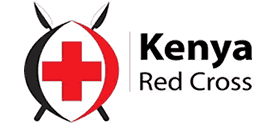Lessons from Liberia

26 May 2015

26 May 2015
David Otieno, a student on Lancaster's new International Health Leadership programme, is putting his learning into practice in Liberia - helping to eradicate Ebola.
“A very big turning point for Africa” is how epidemiologist David Otieno describes the Ebola outbreak that has claimed so many lives in West Africa over the past year.
David knows just how big, and has seen at first-hand what devastating effects it has had on the communities affected. Since December 2014 he has been working in Liberia, the country worst affected, as an emergency health delegate on secondment from the Kenya Red Cross.
Working in collaboration with other humanitarian workers from all around the world, he has been helping the Liberian Red Cross and Liberian Ministry of Health implement strategies to contain and eradicate the virus and to help prevent any further outbreaks in the future. He has also made many visits into the field – working with the people in the local communities, providing psychosocial support, and impressing on them the importance of safer burials and other hygiene practices.
Coinciding with this challenging new assignment in Liberia, David has also been part of Lancaster’s very first International Health Leadership Development programme which began in January 2015. It came at precisely the right time, he says, giving him some highly valuable practical insights into how to manage both himself and those who report to him.
One key benefit has been a greater ability to recognise and deal with different approaches to leadership:
“This is very much a global operation, and out here you meet people from all over the world. Some are quite authoritarian in leadership, some are warm and some are diplomatic. You have to work out how to intervene, and to have a plan you can implement effectively.”
That can sometimes be tricky, particularly managing the tension between a more authoritarian approach that requires all the appropriate official permissions to be sought and the often compelling need to act fast and decisively on the ground. On those occasions, he says, it can pose ethical dilemmas and you have to think through very carefully the consequences of those decisions.
The leadership training by LUMS has also given him insights into his own preferred style of leadership, and how best to lead others. Classifying himself as a ‘manager’, he is now working on achieving a balance between supervising staff closely enough to ensure that what needs to be done is done, yet giving them sufficient room.
“Liberia is still a developing country and people here don’t have all the skills required to handle Ebola – it’s a new disease here. People here are also used to an old style of leadership: they want to control volunteers, to control their payments and their working days. I’ve opened communication channels for all the staff and volunteers to accept me as a manager. I have learnt to try and bring out in meetings a willingness to work as a team and to make people feel as secure as possible. That has made it easier for everyone to work freely, without fear of whether someone is taking over their role.”
The environment which David and his team face can often be a very hostile one, and the messages they bring may not be readily accepted.
“Sometimes you go into communities where religious people tell you can’t come in to work with them. Humanitarian workers are being kept away, sometimes they are being stoned. So you retreat, you work out a way to bring them on board through meetings, and when you start to work as a team, you begin to advance.”
What this has brought home to him is the importance of open-mindedness, and especially of being more tolerant of failure. Sometimes, he says, they have arrived on the scene too late: the victim has already died some hours before, and the people within the community are working out how to bury the body. When that happens, he says, “you go back and tell people that we have not failed, but that we can do it better. We review the protocols, and it’s an opportunity for people to learn that getting it wrong in one case is not a sign of failure. It’s a chance to reflect and learn how to do it better.”
The value of reflection is indeed something he singles out as one of the most powerful lessons he has drawn from the international leadership development programme. It is not something he did consciously before, but is a practice he will continue to incorporate into his daily routine, even after he returns to Kenya.
All in all, working in Liberia, even with the many challenges involved, has been hugely rewarding and touching for David. “It has been a very positive experience that has taught me a lot as a humanitarian worker but also as a human. I wanted to see Ebola go, I wanted to work with these people, and I wanted to see survivors. I’ve made my mark, and I’ve a story to tell my grandchildren.”
He tells how the legacy of the work they have been doing was brought home to him while driving through the forest to remote communities: “Small children, very poor and no more than three or four years old, were running to wash their hands. You feel so good. The message has sunk in. Washing their hands should remain a way of life for them forever, even if Ebola is driven out of Liberia.”
To find out more about the International Health Leadership Development programme contact Neil Ralph at the Lancaster Executive Education
Photo: David Otieno (second left) and colleagues at the Liberia Ebola Treatment Unit in Grand Bassa County, Liberia

